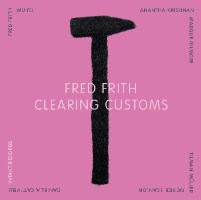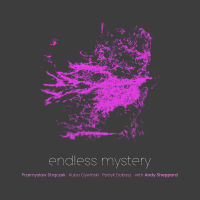Home » Jazz Articles » Interview » Omar Sosa: Bringing The World To The World
Omar Sosa: Bringing The World To The World
OS: I listened to a bit of Randy in Cuba, but when I moved to Ecuador, that was the first time I listened to Randy, Andrew Hill, Cecil Taylor. I tried to go in this kind of area. And when I had this opportunity, I said "Woa." Actually, Monk, too. I discovered this and I said "Woa, this is something!"
AAJ: What does Monk mean to you?
OS: For me, Monk is one of my heroes. His philosophy—playing just what you feel—it is a philosophy of freedom. Every time I listen to him I say, "Wow, he is a big guy. He plays what he feels." And today, if you listen to Monk, he is unique. No one can play like Monk, man. His language, his vocabulary was different. Different words. Because jazz, in one way or another, has one big dictionary. But Monk, he is something—it's a different vocabulary.
AAJ: Mulatos is a really great album, its authenticity—for example, the oud that opens "El Consenso:..
OS: Well, thank you brother. Well actually I need to say thank you to the spirits and... and their sisters because they bring this. I analyze what they want to say, and this is pretty much what I try to do.
AAJ: Another really great tune is "My Three Notes," the version on Ayaguna (Otá, 2007) (Sosa was named as a finalist in the 2005 International Songwriting Competition, Best Instrumental, for the song.] What are the three notes?

OS: C, D, E flat: C minor. C minor is one of the keys I use a lot, for some reason [laughs]. I have a lot of things in C minor. The whole song is around these three notes.
AAJ: Three of your tunes, "My Three Notes," "Muevete En D" and "Iyawo" are recorded on several different albums, in different versions. Is there some special significance about these tunes for you?
OS: Oh yeah. "Iyawo" is important to me because I wrote the song based on a period of my religion. I had a kind of purification—you can call it this—it's called "Iyawo." It's a period of the religion. It's one year. So it's something I'm going to remember until my last day, you know. I wrote this song based on this time.
The world, and its music, is like a big building with different rooms, and everybody has the right to go into all the rooms.
Selected Discography
Omar Sosa, Calma (Otá, 2011)
Omar Sosa & NDR Bigband, Ceremony (Otá, 2010)
Mark Weinstein/Omar Sosa, Tales of the Earth (Otá, 2009)
Omar Sosa, Across The Divide (HalfNote, 2009)
Omar Sosa, Afreecanos (Otá, 2007)
Omar Sosa, Promise (Otá, 2007)
Omar Sosa, Live à FIP (Otá, 2006)
Omar Sosa, Mulatos Remix (Otá, 2006)
Omar Sosa, Ballads (Otá, 2005)
Omar Sosa, Mulatos (Otá, 2005)
Omar Sosa, Aleatoric EFX (Otá, 2004)
Omar Sosa/Adam Rudolph, Pictures of Soul (Otá, 2004)
Omar Sosa, A New Life (Otá, 2003)
Omar Sosa, Ayaguna (Otá, 2003)
Omar Sosa, Sentir (Otá, 2002)
Omar Sosa, Prietos (Otá, 2001)
Omar Sosa, Bembon (Otá, 2000)
Omar Sosa, Inside (Otá, 1999)
Omar Sosa, Spirit of the Roots (Otá, 1999)
Omar Sosa, Nfumbe (Otá, 1998)
Omar Sosa, Free Roots (Otá, 1997)
Omar Sosa, Omar Omar (Otá, 1997)
Photo Credits
Page 1: David Sproule
Page 2: Ricard Cugat
Page 4: Madli-Liis Parts
All Other Photos: Courtesy of Omar Sosa and Otá Records
Tags
Omar Sosa
Interview
AAJ Staff
United States
Childo Tomas
Peter Apfelbaum
Marque Gilmore
Monk
duke ellington
Cecil Taylor
Randy Weston
Paquito D'Rivera
Jaques Morelenbaum
Antonio Carlos Jobim
John Santos
Jack Jones
Babatunde Lea
Richard Howell
Horacio Hernandez
oscar peterson
Weather Report
abdullah ibrahim
Ahmad Jamal
McCoy Tyner
John Coltrane
Chet Baker
Marcus Gilmore
Adam Rudolph
Count Basie
Nat "King" Cole
Andrew Hill
PREVIOUS / NEXT
Omar Sosa Concerts
Support All About Jazz
 All About Jazz has been a pillar of jazz since 1995, championing it as an art form and, more importantly, supporting the musicians who make it. Our enduring commitment has made "AAJ" one of the most culturally important websites of its kind, read by hundreds of thousands of fans, musicians and industry figures every month.
All About Jazz has been a pillar of jazz since 1995, championing it as an art form and, more importantly, supporting the musicians who make it. Our enduring commitment has made "AAJ" one of the most culturally important websites of its kind, read by hundreds of thousands of fans, musicians and industry figures every month.





















